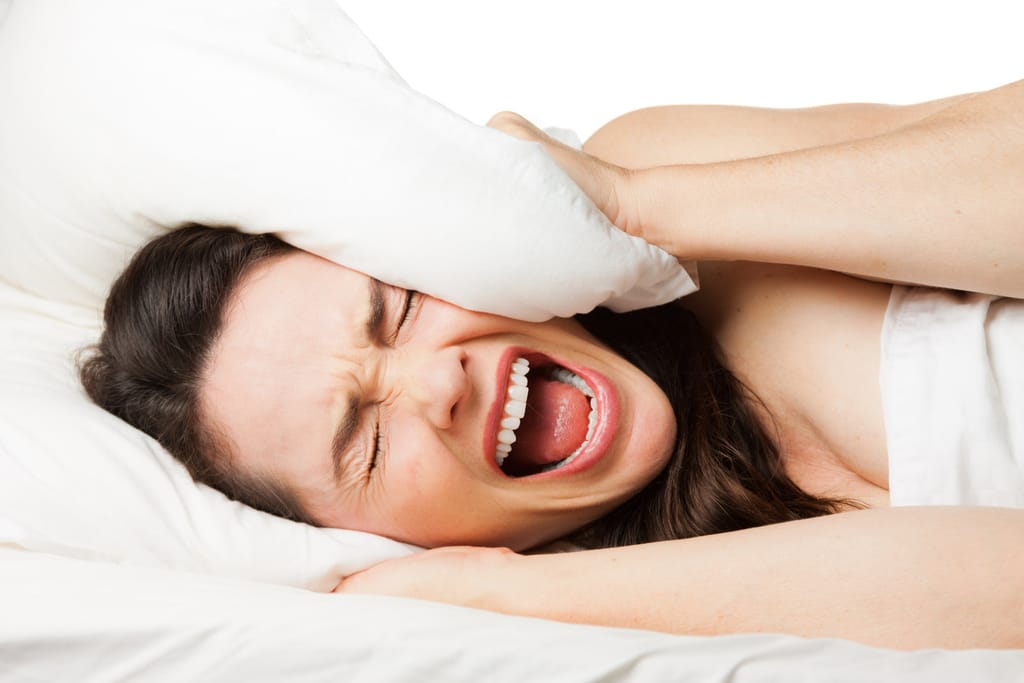Why you can’t sleep
If you struggle to get a good night’s sleep, you should know that there are many reasons why people like you can’t sleep. These reasons vary from physical and mental health conditions to lifestyle choices. Whatever the cause, not getting enough sleep can have serious consequences for your health and general well-being.

The causes of insomnia
Insomnia is a condition that affects millions of people worldwide, leading to a wide range of physical and mental health problems. It is characterized by difficulty falling asleep, staying asleep, or both, with the resulting lack of sleep leading to excessive daytime sleepiness, poor concentration, and a generally impaired quality of life. While the exact cause of insomnia is often hard to pin down, there are several potential factors that may be contributing to this troubling condition.
One possible cause of insomnia is psychological stress. Stressful life events, such as the death of a loved one or relationship problems, can lead to difficulty falling asleep or staying asleep. Similarly, stress caused by work or school can also contribute to insomnia. In these cases, it may be necessary to address the underlying stress in order to improve sleep.
Another potential cause of insomnia is lifestyle habits. Alcohol, caffeine, and nicotine can all interfere with the body’s ability to fall asleep and stay asleep. Additionally, certain medications, such as those used to treat depression, can also lead to difficulty sleeping. It is important to review any medications you are taking with your doctor to ensure they are not contributing to your insomnia.
Disorders such as sleep apnea and restless leg syndrome can also lead to insomnia. The latter is a condition in which the muscles in the throat relax, leading to blockages in the airways and thus disruption of sleep.
Finally, insomnia can also be a symptom of an underlying medical condition. Conditions such as depression, anxiety, and thyroid disorders are all associated with difficulty sleeping. Treating the underlying condition can often lead to improved sleep.
Stress in sleep disorders
Sleep disorders are a common problem that affects many people worldwide. Unfortunately, many individuals are not aware of the potential role of stress in those disorders and how it may be contributing to their struggles to obtain quality rest.
Stress is defined as the body’s response to any kind of demand or threat and is an integral part of life. It is the body’s way of preparing to face a challenge or respond to a situation. When stress levels are high, it can affect the body in many ways, including interfering with sleep. High levels of stress can cause difficulty with falling asleep or staying asleep, as well as reducing the amount of time spent in deep sleep.
Stress can also cause insomnia, which is a disorder that is characterized by difficulty falling and staying asleep. Insomnia is often caused by an inability to relax due to high levels of stress. This can lead to an increase in anxiety, which further disrupts the individual’s ability to attain quality rest. In addition, high levels of stress can cause nightmares and other forms of sleep disturbances.
Stress can also lead to other disorders, such as sleep apnea, which is a condition in which the individual’s breathing is interrupted. This can cause fatigue during the day, which can lead to further stress and reduced quality of sleep.
The best way to reduce the effects of stress is to manage and reduce stress levels. This can be done through relaxation techniques, such as deep breathing, meditation, and yoga. Exercise is also a great way to reduce stress levels and can help to improve sleep quality.

Natural remedies for sleeplessness
Sleep is an essential part of our lives, yet many of us struggle with sleeplessness and insomnia. Natural remedies are becoming increasingly popular for those looking for an effective way to get a good night’s sleep without resorting to sleeping pills.
Exercise is often recommended as a way to improve sleep. Exercise can help reduce stress levels, increase feelings of relaxation, and improve the quality of slumber. Regular physical activity is thought to help reset the body’s internal clock, helping to train it to recognize the difference between day and night. Aim to get at least 30 minutes of exercise a day, and limit vigorous activity too close to bedtime.
Herbal remedies are also a popular option for those looking for a natural solution to sleeplessness. Chamomile, valerian, and lavender are some of the most commonly used herbs for help with sleep. Chamomile is known for its calming effects and is often taken as a tea before bed. Valerian is thought to increase the amount of time spent in deep sleep. Lavender is thought to reduce stress and anxiety, which can help improve sleep quality.
Diet can also play an important role in helping to get a good night’s sleep. Eating too close to bedtime can make it difficult to fall asleep, so try to eat dinner at least two to three hours before bedtime. Eating a light snack that is high in carbohydrates can help to increase serotonin levels, which can help promote sleep.
Health and well-being
The circadian clock is an internal mechanism that is set to a 24-hour cycle and is synchronized to the natural light-dark cycle of day and night. When the clock works, it helps the body to maintain a regular sleep-wake pattern, allowing us to function.
During the day, the body produces hormones such as cortisol, which helps to keep us alert and energized. At night, we release hormones such as melatonin to help us relax and prepare for sleep.
When the circadian clock is disturbed, it can lead to a range of health problems. For example, jet lag occurs when the body is subjected to a sudden change in the light-dark cycle. This can lead to fatigue, insomnia, stomach problems, heart diseases and other symptoms. Shift work is another common cause of circadian disruption that can interfere with sleep. Working long hours during the night can lead to difficulty sleeping during the day, as well as an increased risk of obesity and diabetes.
Disruptions to the circadian clock can also have a negative effect on mental health. Studies have shown that people who have difficulty maintaining a regular sleep-wake pattern are more likely to experience depression and anxiety.
Fortunately, there are strategies that can help to keep the circadian clock in sync. Exposure to natural sunlight during the day and limiting blue or bright light exposure at night can help to regulate the body’s sleep-wake cycle. Regular exercise and avoiding caffeine and alcohol before bedtime can also help to improve sleep quality.
Conclusion
There are many potential reasons why you may be having difficulty sleeping, such as stress, anxiety, poor sleep hygiene, lifestyle factors, and health conditions. It is important to identify the root cause of your sleeplessness and take the necessary steps to address it. Deep breathing, guided imagery, and progressive muscle relaxation are all techniques that can help relax the body and mind, making it easier to drift off to slumber. If you are still having trouble sleeping, it may be beneficial to consult a doctor or specialist to help you develop an individualized plan for better sleep.
Reference
- Harvard Health. (2021, August 13). 8 reasons why you’re not sleeping. https://www.health.harvard.edu/sleep/8-reasons-why-youre-not-sleeping
- Risher, B. (2022, August 8). Why Am I So Tired, but Can’t Sleep? Healthline. https://www.healthline.com/health/healthy-sleep/tired-but-cant-sleep
- Why Can’€™t I Sleep? (2021, July 26). WebMD. https://www.webmd.com/sleep-disorders/why-cant-i-sleep